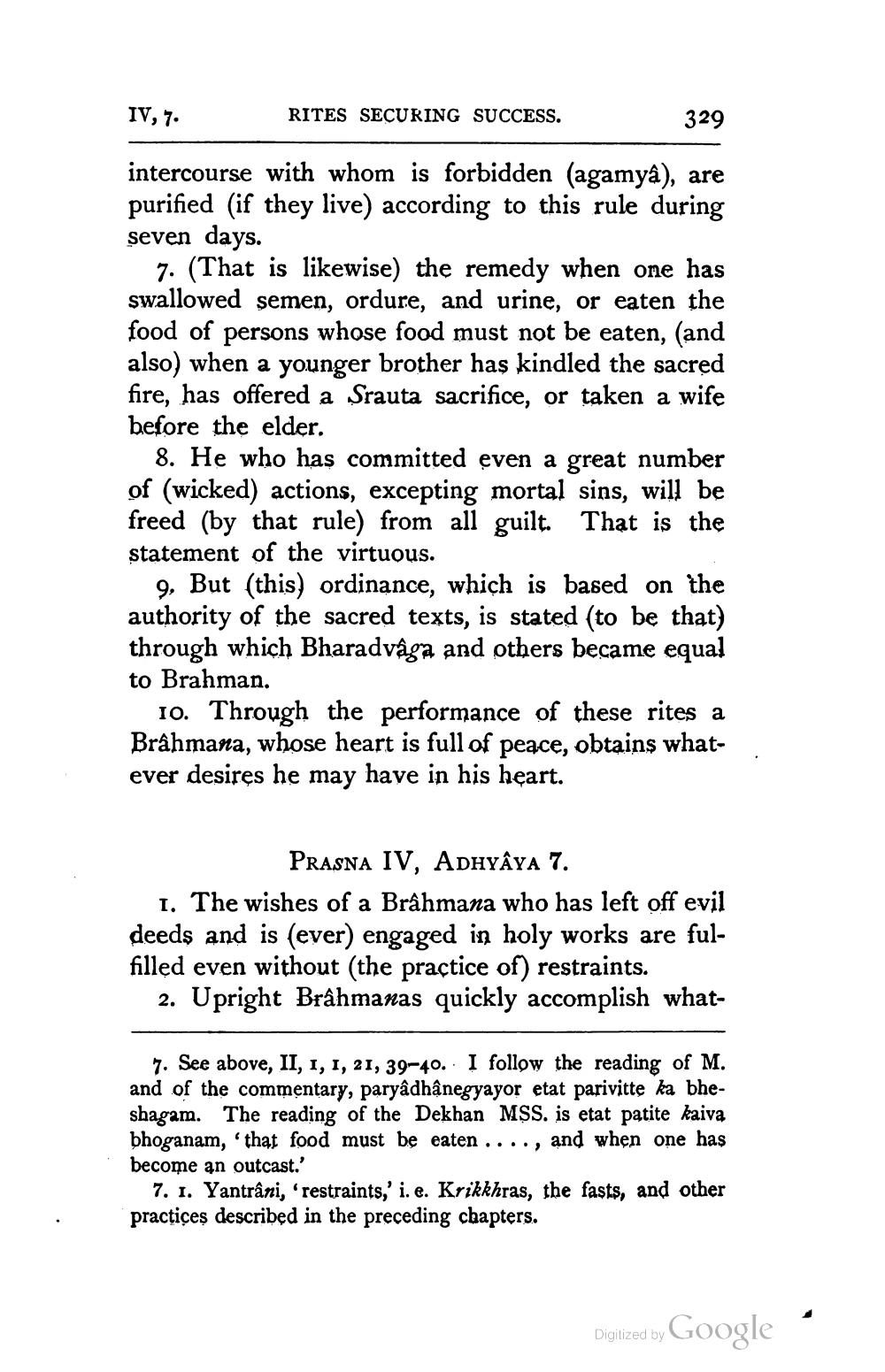________________
IV, 7.
RITES SECURING SUCCESS.
329
intercourse with whom is forbidden (agamya), are purified (if they live) according to this rule during seven days.
7. (That is likewise) the remedy when one has swallowed semen, ordure, and urine, or eaten the food of persons whose food must not be eaten, (and also) when a younger brother has kindled the sacred fire, has offered a Srauta sacrifice, or taken a wife before the elder.
8. He who has committed even a great number of (wicked) actions, excepting mortal sins, will be freed (by that rule) from all guilt. That is the statement of the virtuous.
9, But (this) ordinance, which is based on the authority of the sacred texts, is stated to be that) through which Bharadvậga and others became equal to Brahman.
10. Through the performance of these rites a Brâhmana, whose heart is full of peace, obtains whatever desires he may have in his heart.
PRASNA IV, ADHYÂya 7. 1. The wishes of a Brâhmana who has left off evil deeds and is (ever) engaged in holy works are fulfilled even without (the practice of) restraints.
2. Upright Brâhmanas quickly accomplish what
7. See above, II, 1, 1, 21, 39–40. I follow the reading of M. and of the commentary, paryâdhậnegyayor etat parivitte ka bheshagam. The reading of the Dekhan MSS. is etat patite kaiva bhoganam, 'that food must be eaten ...., and when one has become an outcast.'
7. 1. Yantrâni, restraints,' i. e. Krikkhras, the fasts, and other practices described in the preceding chapters.
Digilized by Google
+




